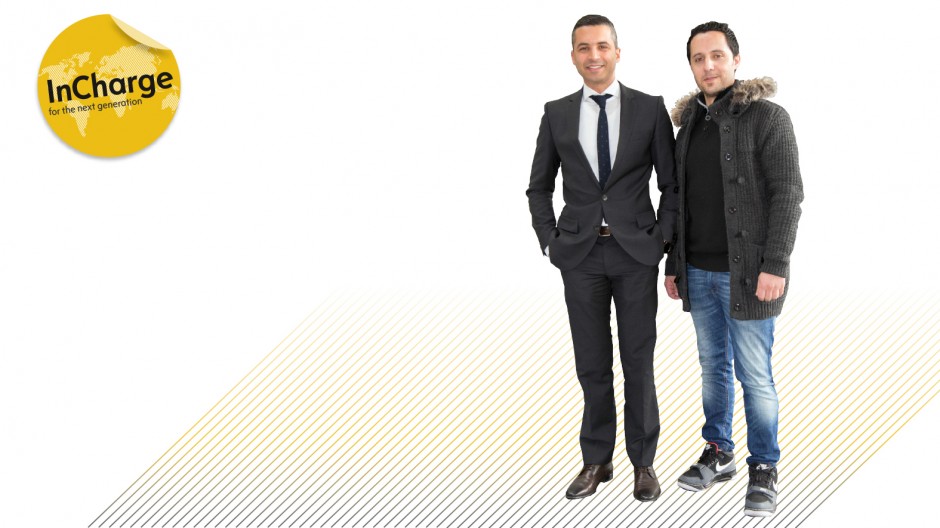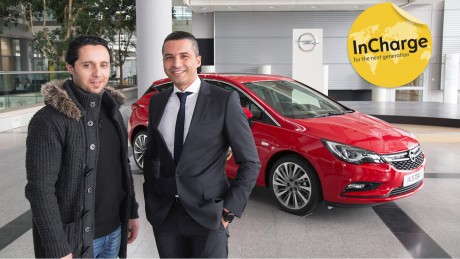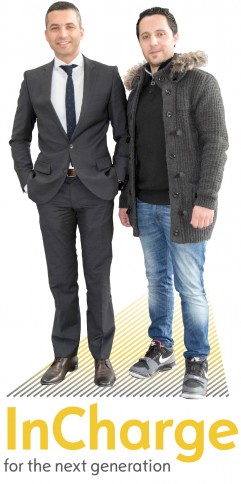
Both men look as if they’re old friends from childhood when they sit and chat in a cafe. They are close in age, youthful, exchanging laughs and chatting about work, family, home. Their gestures and facial expressions are similar, yet their actual background stories couldn’t be more different.
Monir El Yousfi (35) was born in Mainz and raised in Rüsselsheim. Today, he works as an assistant to Katherine Worthen, Vice President Purchasing & Supply Chain Opel Group. Kasem Aldabes (31) was born in Syria and studied in Damascus. Around a year ago, he fled his war-torn and terror-plagued home country. He found shelter in a refugee home in Frankfurt in June 2015. The only contact he has to friends and relatives back home now is over Facebook.
–––
“We all need to make
a contribution and help out.”
– Monir El Yousfi –
–––
The two men met each other for the first time last December. It was at a meeting that was held as part of the InCharge initiative for refugees, which was set in motion by German companies. “Karl-Thomas Neumann made an appeal to Opel employees to encourage participation in November, which I had read. It didn’t take me long to decide,” recalls Monir El Yousfi. “I think we all need to make a contribution and help out people like him.”
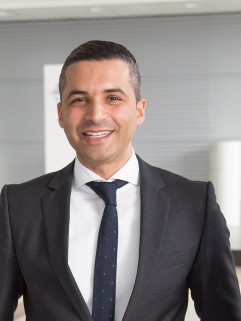
The courage, resolve, and willingness to learn of the mentee is impressive: Monir El Yousfi.
It’s not difficult for him to put himself in the place of a refugee. “I just imagine what it would be like if I were on my own in a foreign country for the first time, not speaking a word of the language there. I would appreciate any and every helping hand that was extended to me.” He finds the courage, resolve, and willingness to learn of his mentee, Kasem Aldabes, impressive while Kasem embarks on this journey into an entirely new life. “I can learn a thing or two from it.”
THE RIGHT CHEMISTRY
It’s not so much that they both share a linguistic tie with Arabic, basically it’s the fact that they have the right chemistry for a friendship. “There are huge differences in the various dialects of Arabic. So if we talk to each other in our own dialects, we can understand a bit of it, but we normally communicate in German.” And that’s also the idea behind the InCharge initiative. “The main way to successfully integrate is to learn German.” Actually, what binds mentor and mentee even more is that they share a common mindset.
The goal is clear for Kasem Aldabes and it provides the necessary motivation: “I want to earn my master degree in business psychology in Germany.” To finance his studies, he absolutely wants to find a job. “I don’t know exactly as what, but I’m flexible.” He has already completed a degree in education in Syria.
He’s on the phone to his mentor every day, and they meet up one to two times a week, generally in Frankfurt. Monir El Yousfi accompanies his mentee when he has to deal with German bureaucracy, and he helps him with paperwork, which is an essential part of living in Germany. Right now Kasem needs to find an apartment. “We’re looking for a studio or one-bedroom rental for Kasem, something that’s around 30, 40 square meters. Hopefully not too far away. One in this neighborhood would be great. Maybe one of my fellow workers at Opel has an idea.” Monir El Yousfi recently took Kasem to the hospital for surgery. “Nothing big, but even if it’s a small operation, you enjoy having someone at your side.”
MORE THAN JUST A MENTOR – A FRIEND
The mentorships are designed to last 12 weeks, “but that’s just to provide a general idea,” explains Monir El Yousfi. It’s clear to him that he and Kasem will maintain their friendship above and beyond the scope of InCharge. “You start to see the other person as more than just a mentor. They become a friend.” It’s much more important, too, that the family understands the value of this commitment, which lies outside of office hours. “And I’m lucky in this regard, as my family stands behind it.”
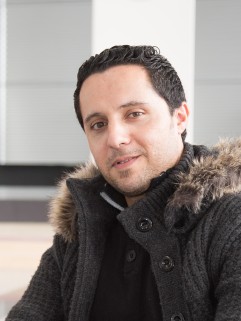
He’s on the phone to his mentor every day, and they meet up one to two times a week: Kasem Aldabes.
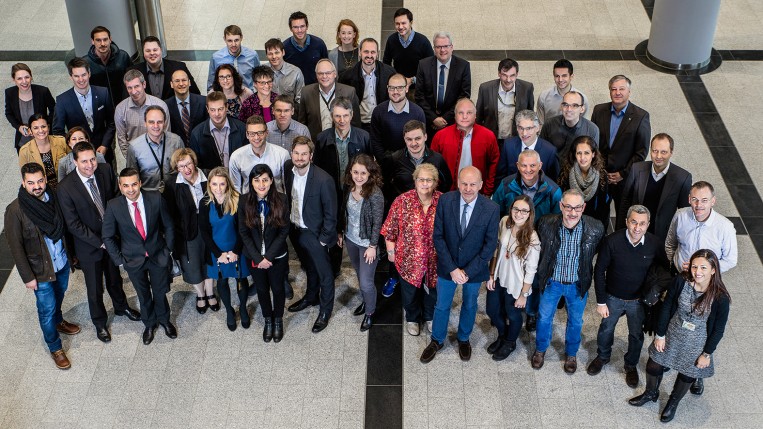
More than 100 employees are taking part in the initiative. They help improve German language skills, deal with everyday difficulties, and search for a job, training program, or even an apartment.
“We’re Just Getting the Ball Rolling”
Yasmine Schritt, InCharge coordinator, talks about the
requirements and opportunities for the future
Fifteen participating companies from the German state of Hesse, ranging from global automotive manufacturers to mom-and-pop shops, have pledged their support to InCharge. More than 100 employees from Opel alone have started taking part in the initiative since November 2015. They help improve German language skills, deal with everyday difficulties, and search for a job, a training program, or even an apartment. Yasmine Schritt from Public Policy and Government Relations coordinates activities within the company.
Ms. Schritt, do you need to possess any special skills in terms of languages to become a mentor?
No, because the mentees need to improve their German in particular, and this skill develops through their contact with the mentor. It is the primary requirement to entering the labor market here. The mentees generally already have the basics when we find jobs for them in the private sector. ‘B1 level’ is the officialese for it. We are helping refugees who have successfully passed through the asylum process, or those who are definitely entitled to the status.
How do you match mentors with their mentees?
People who want to become a mentor can register on our homepage. Then we send out invitations on a regular basis to a meet-and-greet event in the region. We’ve already made an initial pairing by the time people attend the event. We usually pay attention to matching people’s ages and gender. And if there’s any additional information provided when the potential mentors register, we try to take that into account. So far, our experiences with the selection procedure have been quite positive.
In what direction will the initiative grow now?
People at the Johannes Gutenberg University Mainz are evaluating the first set of surveys where we asked mentors and refugees to provide their feedback on the initiative. We expect to receive the preliminary results soon, and will have an idea of how successful it is and where and how we can make improvements. Hesse is only the proving ground. The mentorship program will be rolled out nationwide sometime this year.
Last update April 2016
